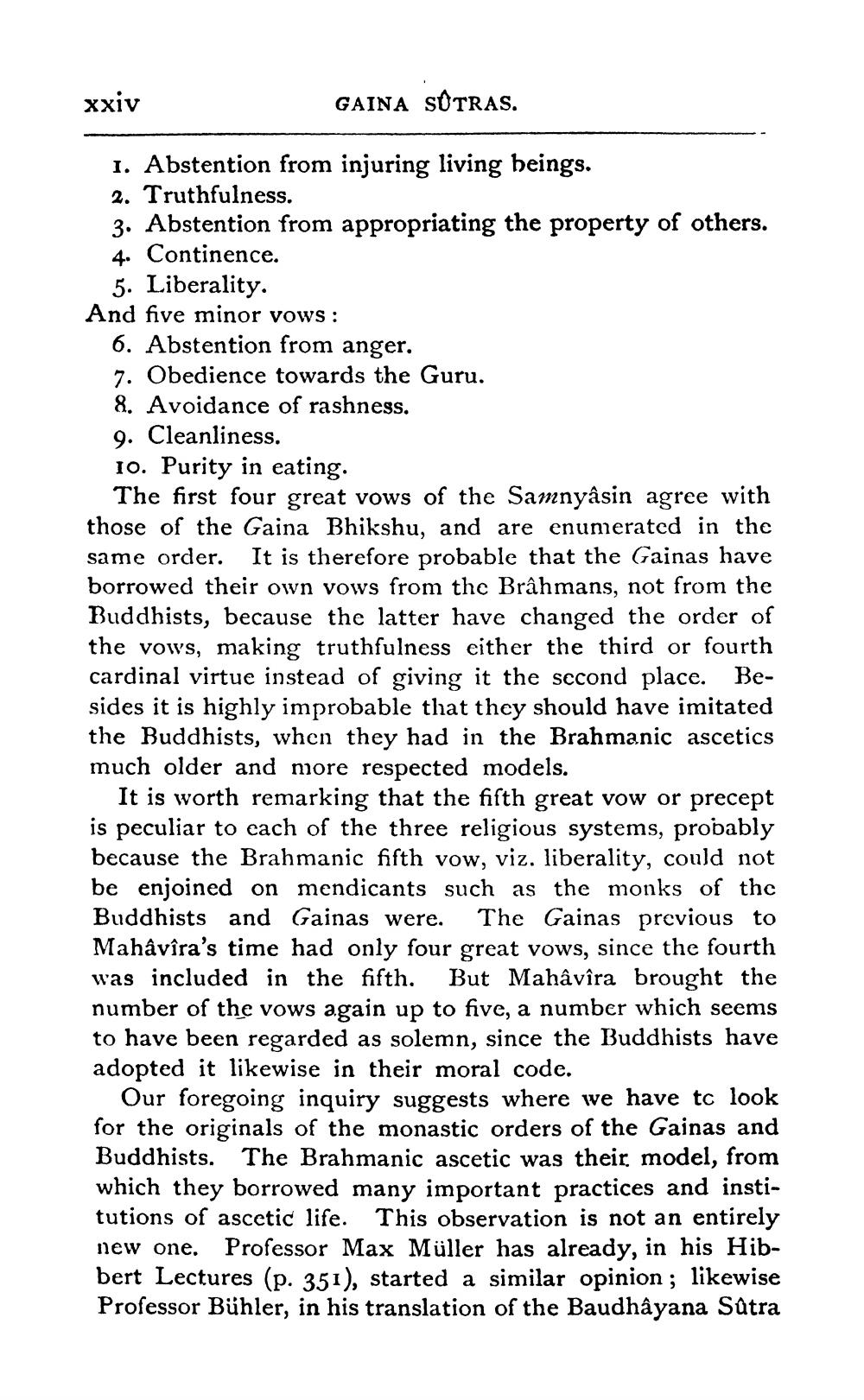________________
xxiv
GAINA SUTRAS.
1. Abstention from injuring living beings. 2. Truthfulness. 3. Abstention from appropriating the property of others. 4. Continence.
5. Liberality. And five minor vows :
6. Abstention from anger. 7. Obedience towards the Guru. 8. Avoidance of rashness. 9. Cleanliness 10. Purity in eating.
The first four great vows of the Samnyâsin agree with those of the Gaina Bhikshu, and are enumerated in the same order. It is therefore probable that the Gainas have borrowed their own vows from the Brâhmans, not from the Buddhists, because the latter have changed the order of the vows, making truthfulness either the third or fourth cardinal virtue instead of giving it the second place. Besides it is highly improbable that they should have imitated the Buddhists, when they had in the Brahmanic ascetics much older and more respected models.
It is worth remarking that the fifth great vow or precept is peculiar to each of the three religious systems, probably because the Brahmanic fifth vow, viz. liberality, could not be enjoined on mendicants such as the monks of the Buddhists and Gainas were. The Gainas previous to Mahâvîra's time had only four great vows, since the fourth was included in the fifth. But Mahâvîra brought the number of the vows again up to five, a number which seems to have been regarded as solemn, since the Buddhists have adopted it likewise in their moral code.
Our foregoing inquiry suggests where we have to look for the originals of the monastic orders of the Gainas and Buddhists. The Brahmanic ascetic was their model, from which they borrowed many important practices and institutions of ascetic life. This observation is not an entirely new one. Professor Max Müller has already, in his Hibbert Lectures (p. 351), started a similar opinion ; likewise Professor Bühler, in his translation of the Baudhayana Sätra




